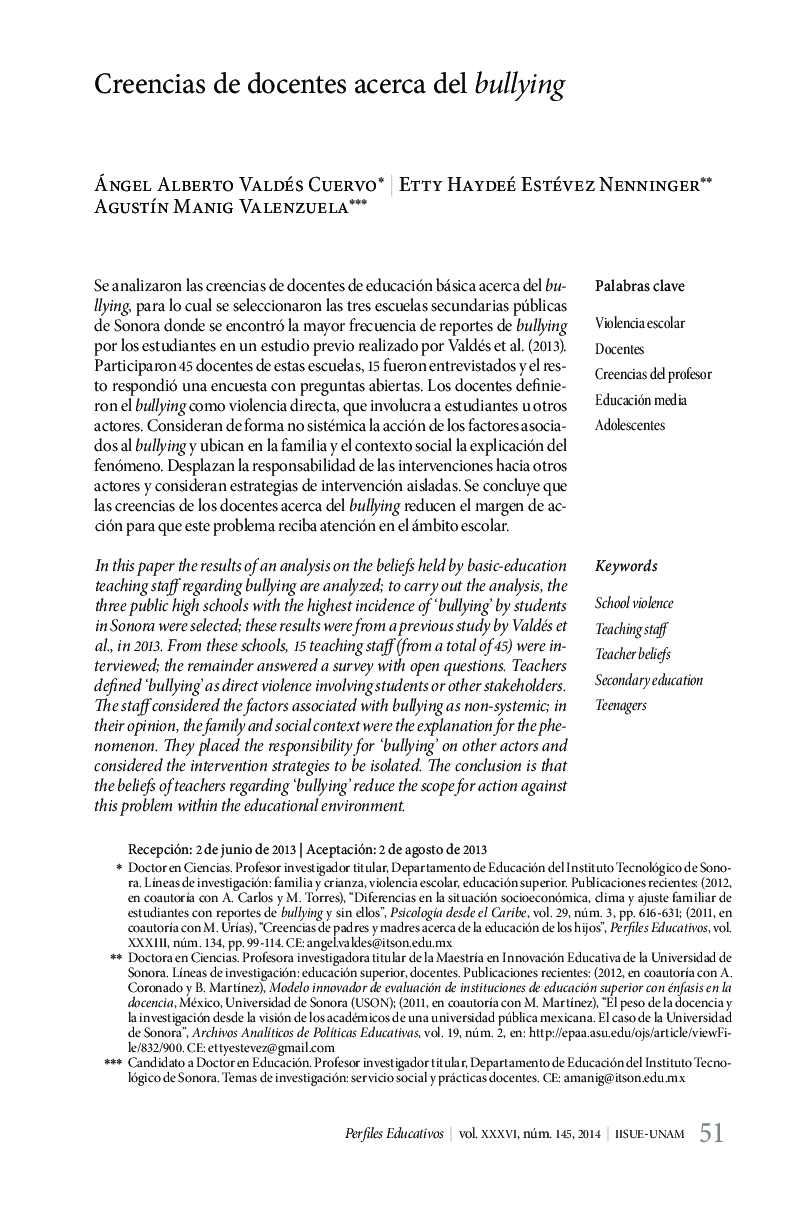| Article ID | Journal | Published Year | Pages | File Type |
|---|---|---|---|---|
| 369802 | Perfiles Educativos | 2014 | 14 Pages |
Se analizaron las creencias de docentes de educación básica acerca del bullying, para lo cual se seleccionaron las tres escuelas secundarias públicas de Sonora donde se encontró la mayor frecuencia de reportes de bullying por los estudiantes en un estudio previo realizado por Valdés et al. (2013). Participaron 45 docentes de estas escuelas, 15 fueron entrevistados y el resto respondió una encuesta con preguntas abiertas. Los docentes definieron el bullying como violencia directa, que involucra a estudiantes u otros actores. Consideran de forma no sistémica la acción de los factores asociados al bullying y ubican en la familia y el contexto social la explicación del fenómeno. Desplazan la responsabilidad de las intervenciones hacia otros actores y consideran estrategias de intervención aisladas. Se concluye que las creencias de los docentes acerca del bullying reducen el margen de acción para que este problema reciba atención en el ámbito escolar.
In this paper the results of an analysis on the beliefs held by basic-education teaching staff regarding bullying are analyzed; to carry out the analysis, the three public high schools with the highest incidence of ‘bullying’ by students in Sonora were selected; these results were from a previous study by Valdés et al., in 2013. From these schools, 15 teaching staff (from a total of 45) were interviewed; the remainder answered a survey with open questions. Teachers defined ‘bullying’ as direct violence involving students or other stakeholders. The staff considered the factors associated with bullying as non-systemic; in their opinion, the family and social context were the explanation for the phenomenon. They placed the responsibility for ‘bullying’ on other actors and considered the intervention strategies to be isolated. The conclusion is that the beliefs of teachers regarding ‘bullying’ reduce the scope for action against this problem within the educational environment.
